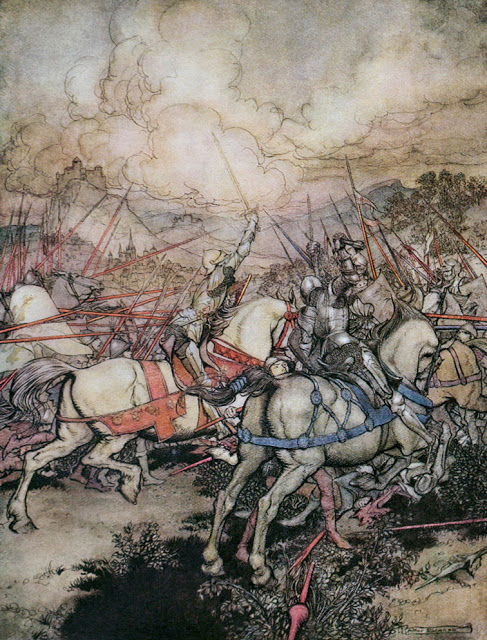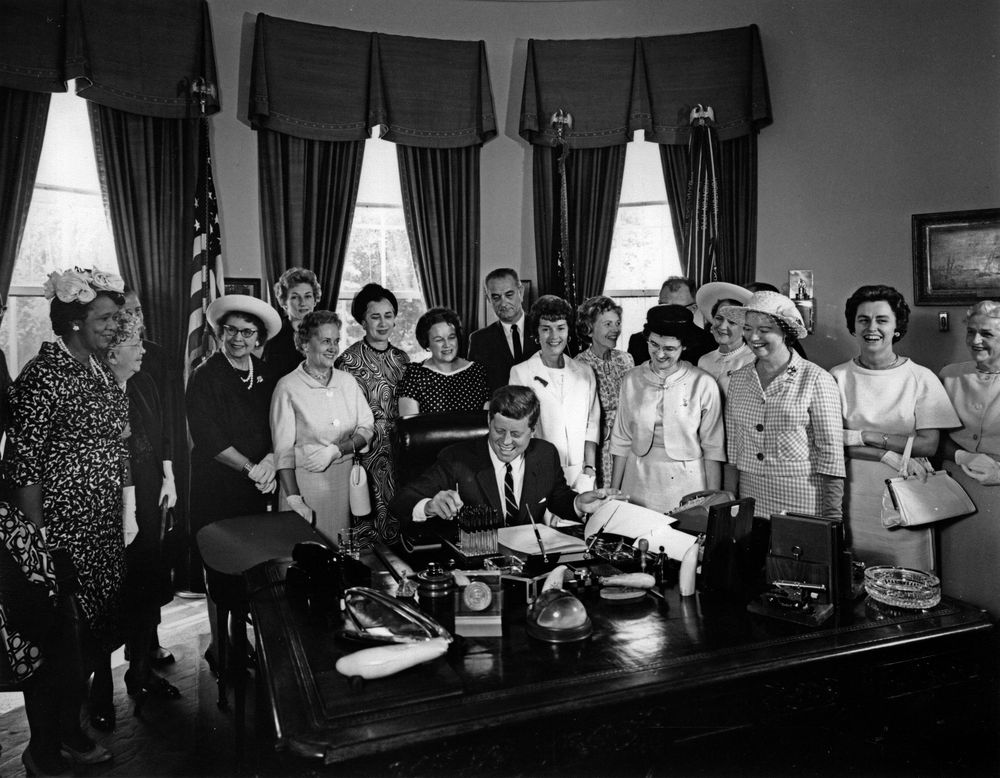|
Women In Speculative Fiction
The role of women in speculative fiction has changed a great deal since the early to mid-20th century. There are several aspects to women's roles, including their participation as authors of speculative fiction and their role in science fiction fandom. Regarding authorship, in 1948, 10–15% of science fiction writers were female. Women's role in speculative fiction (including science fiction) has grown since then, and in 1999, women comprised 36% of the Science Fiction and Fantasy Writers of America's professional members. ''Frankenstein'' (1818) by Mary Shelley has been called the first science fiction novel, although women wrote utopian novels even before that, with Margaret Cavendish publishing the first ('' The Blazing World'') in the seventeenth century. Early published fantasy was written by and for any gender. However, speculative fiction, with science fiction in particular, has traditionally been viewed as a male-oriented genre. Women have been active in science fict ... [...More Info...] [...Related Items...] OR: [Wikipedia] [Google] [Baidu] |
Analog Science Fiction And Fact
''Analog Science Fiction and Fact'' is an American science fiction magazine published under various titles since 1930. Originally titled ''Astounding Stories of Super-Science'', the first issue was dated January 1930, published by William Clayton (publisher), William Clayton, and edited by Harry Bates (author), Harry Bates. Clayton went bankrupt in 1933 and the magazine was sold to Street & Smith. The new editor was F. Orlin Tremaine, who soon made ''Astounding'' the leading magazine in the nascent pulp science fiction field, publishing well-regarded stories such as Jack Williamson's ''Legion of Space Series, Legion of Space'' and John W. Campbell's Twilight (Campbell short story), "Twilight". At the end of 1937, Campbell took over editorial duties under Tremaine's supervision, and the following year Tremaine was let go, giving Campbell more independence. Over the next few years Campbell published many stories that became classics in the field, including Isaac Asimov's Found ... [...More Info...] [...Related Items...] OR: [Wikipedia] [Google] [Baidu] |
Historical Fantasy
Historical fantasy is a category of fantasy and genre of historical fiction that incorporates fantastic elements (such as magic (fantasy), magic) into a more "realistic" narrative. There is much crossover with other subgenres of fantasy; those classed as King Arthur, Arthurian, Celts, Celtic, or Dark Ages (historiography), Dark Ages could just as easily be placed in historical fantasy. Stories fitting this classification generally take place prior to the 20th century. Films of this genre may have plots set in biblical times or classical antiquity. They often have plots based very loosely on mythology or legends of Greek-Roman history, or the surrounding cultures of the same era. Overview Historical fantasy usually takes one of three common approaches: # Magic in fiction, Magic, mythical creatures, such as dragons, or other supernatural elements, such as magic rings, co-exist invisibly with the mundane world, with the majority of people being unaware of it. In this, it has a clo ... [...More Info...] [...Related Items...] OR: [Wikipedia] [Google] [Baidu] |
Tor Books
Tor Books is the primary imprint of Tor Publishing Group (previously Tom Doherty Associates), a publishing company based in New York City. It primarily publishes science fiction and fantasy titles. History Tor was founded by Tom Doherty, Harriet McDougal, and Jim Baen in 1980. (Baen founded his own imprint three years later.) They were soon joined by Barbara Doherty and Katherine Pendill, who then composed the original startup team. '' Tor'' is a word meaning a rocky pinnacle, as depicted in Tor's logo. Tor Books was sold to St. Martin's Press in 1987. Along with St. Martin's Press; Henry Holt; and Farrar, Straus and Giroux, it became part of the Holtzbrinck group, now part of Macmillan in the US. In June 2019, Tor and other Macmillan imprints moved from the Flatiron Building, to larger offices in the Equitable Building. Imprints Tor is the primary imprint of Tor Publishing Group. The Forge imprint publishes an array of fictional titles, including historical no ... [...More Info...] [...Related Items...] OR: [Wikipedia] [Google] [Baidu] |
Feminist Science Fiction
Feminist science fiction is a subgenre of science fiction (abbreviated "SF") focused on such feminist themes as: gender inequality, sexuality, race, economics, reproduction, and environment. Feminist SF is political because of its tendency to critique the dominant culture. Some of the most notable feminist science fiction works have illustrated these themes using utopias to explore a society in which gender differences or gender power imbalances do not exist, or dystopias to explore worlds in which gender inequalities are intensified, thus asserting a need for feminist work to continue. Definition Feminist science fiction is a sub-genre of science fiction (SF for short) that focuses on theories that include feminist themes, for example gender inequality, sexuality, race, economics and reproduction. Feminist science fiction spans a wider range than science fiction itself, covering fantasy, utopia and dystopia, horror (such as Anne Rice's vampire stories). Marleen S. Barr ... [...More Info...] [...Related Items...] OR: [Wikipedia] [Google] [Baidu] |
The Female Man
''The Female Man'' is a feminist science fiction novel by American writer Joanna Russ. It was originally written in 1970 and first published in 1975 by Bantam Books. Russ was an ardent feminist and challenged sexist views during the 1970s with her novels, short stories, and nonfiction works. These works include '' We Who Are About To...'', " When It Changed", and ''What Are We Fighting For?: Sex, Race, Class, and the Future of Feminism''. The novel follows the lives of four women living in parallel universes which differ in time and place. The women visit each other's worlds and are startled by the different views on gender roles and social conventions surrounding women and womanhood. Their encounters influence them to reevaluate their lives and redefine what it means to be a woman. The title of the novel comes from the character Joanna, who transforms into a "female man" in order to be respected and seen beyond her sex. A "female man" is a woman with a man's mind, her body and s ... [...More Info...] [...Related Items...] OR: [Wikipedia] [Google] [Baidu] |
The Left Hand Of Darkness
''The Left Hand of Darkness'' is a science fiction novel by the American writer Ursula K. Le Guin. Published in 1969, it became immensely popular, and established Le Guin's status as a major author of science fiction. The novel is set in the fictional Hainish universe as part of the '' Hainish Cycle'', a series of novels and short stories by Le Guin, which she introduced in the 1964 short story " The Dowry of Angyar". It was fourth in sequence of writing among the Hainish novels, preceded by '' City of Illusions'', and followed by ''The Word for World Is Forest''. The novel follows the story of Genly Ai, a human native of Terra, who is sent to the planet of Gethen as an envoy of the Ekumen, a loose confederation of planets. Ai's mission is to persuade the nations of Gethen to join the Ekumen, but he is stymied by a lack of understanding of their culture. Individuals on Gethen are ''ambisexual'', with no fixed sex; this has a strong influence on the culture of the planet, and c ... [...More Info...] [...Related Items...] OR: [Wikipedia] [Google] [Baidu] |
Feminist
Feminism is a range of socio-political movements and ideology, ideologies that aim to define and establish the political, economic, personal, and social gender equality, equality of the sexes. Feminism holds the position that modern societies are patriarchal—they prioritize the male point of view—and that women are treated unjustly in these societies. Efforts to change this include fighting against gender stereotypes and improving educational, professional, and interpersonal opportunities and outcomes for women. Originating in late 18th-century Europe, feminist movements have campaigned and continue to campaign for women's rights, including the right to Women's suffrage, vote, Nomination rules, run for public office, Right to work, work, earn gender pay gap, equal pay, Right to property, own property, Right to education, receive education, enter into contracts, have equal rights within marriage, and maternity leave. Feminists have also worked to ensure access to contr ... [...More Info...] [...Related Items...] OR: [Wikipedia] [Google] [Baidu] |
Joanna Russ
Joanna Russ (February 22, 1937 – April 29, 2011) was an American writer, academic and feminist. She is the author of a number of works of science fiction, fantasy and feminist literary criticism such as '' How to Suppress Women's Writing'', as well as a contemporary novel, '' On Strike Against God'', and one children's book, ''Kittatinny''. She is best known for '' The Female Man'', a novel combining utopian fiction and satire, and the story " When It Changed". Background Joanna Russ was born in The Bronx, New York City, to Evarett I. and Bertha (née Zinner) Russ, both teachers. Her family was Jewish. She began creating works of fiction at a very early age. Over the following years she filled countless notebooks with stories, poems, comics and illustrations, often hand-binding the material with thread. As a senior at William Howard Taft High School, Russ was selected as one of the top ten Westinghouse Science Talent Search winners. She graduated from Cornell University, wh ... [...More Info...] [...Related Items...] OR: [Wikipedia] [Google] [Baidu] |
Ursula K
Ursula commonly refers to: * Ursula (name), feminine name (and a list of people and fictional characters with the name) * Ursula (''The Little Mermaid''), a fictional character who appears in ''The Little Mermaid'' (1989) * Saint Ursula, a legendary Christian saint Ursula may also refer to: * ''Ursula'' (album), an album by American jazz pianist Mal Waldron * Ursula (crater), a crater on Titania, a moon of Uranus *Ursula (detention center) Ursula is the colloquial name for the Central Processing Center, the largest U.S. Customs and Border Protection detention center for undocumented immigrants. The facility is a retrofitted warehouse that can hold more than 1,000 people. It was ope ..., processing facility for unaccompanied minors in McAllen, Texas * Ursula Channel, body of water in British Columbia, Canada * 375 Ursula, a large main-belt asteroid * HMS ''Ursula'', a destroyer and two submarines that served with the Royal Navy * Tropical Storm Ursula (other), a typhoon ... [...More Info...] [...Related Items...] OR: [Wikipedia] [Google] [Baidu] |
Second Wave Feminism
Second-wave feminism was a period of feminist activity that began in the early 1960s and lasted roughly two decades, ending with the feminist sex wars in the early 1980s and being replaced by third-wave feminism in the early 1990s. It occurred throughout the Western world and aimed to increase women's equality by building on the feminist gains of the late 19th and early 20th centuries. Second-wave feminism built on first-wave feminism and broadened the scope of debate to include a wider range of issues: sexuality, family, domesticity, the workplace, reproductive rights, ''de facto'' inequalities, and official legal inequalities. First-wave feminism typically advocated for formal equality and second-wave feminism advocated for substantive equality. It was a movement focused on critiquing patriarchal or male-dominated institutions and cultural practices throughout society. Second-wave feminism also brought attention to issues of domestic violence and marital rape, created rape ... [...More Info...] [...Related Items...] OR: [Wikipedia] [Google] [Baidu] |





